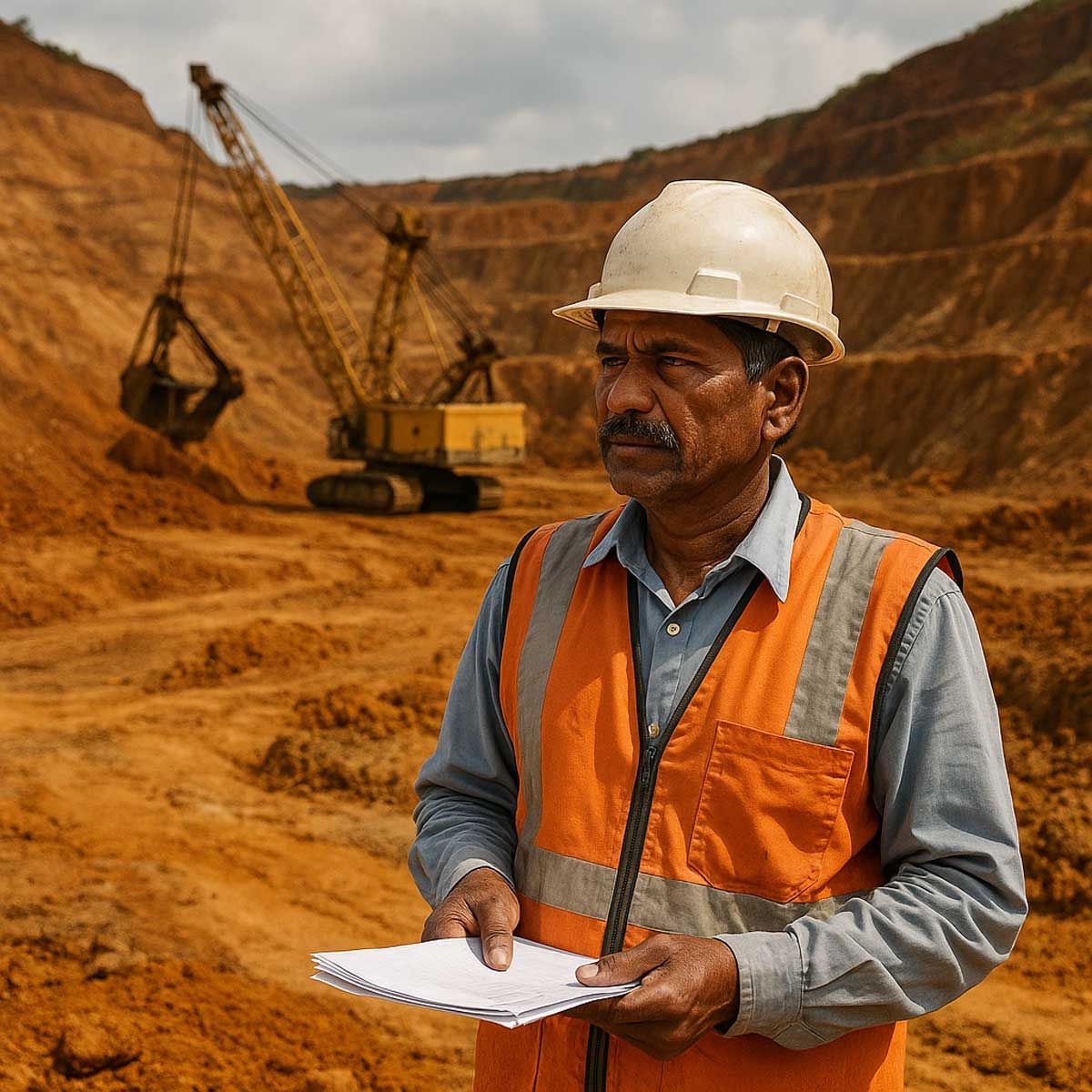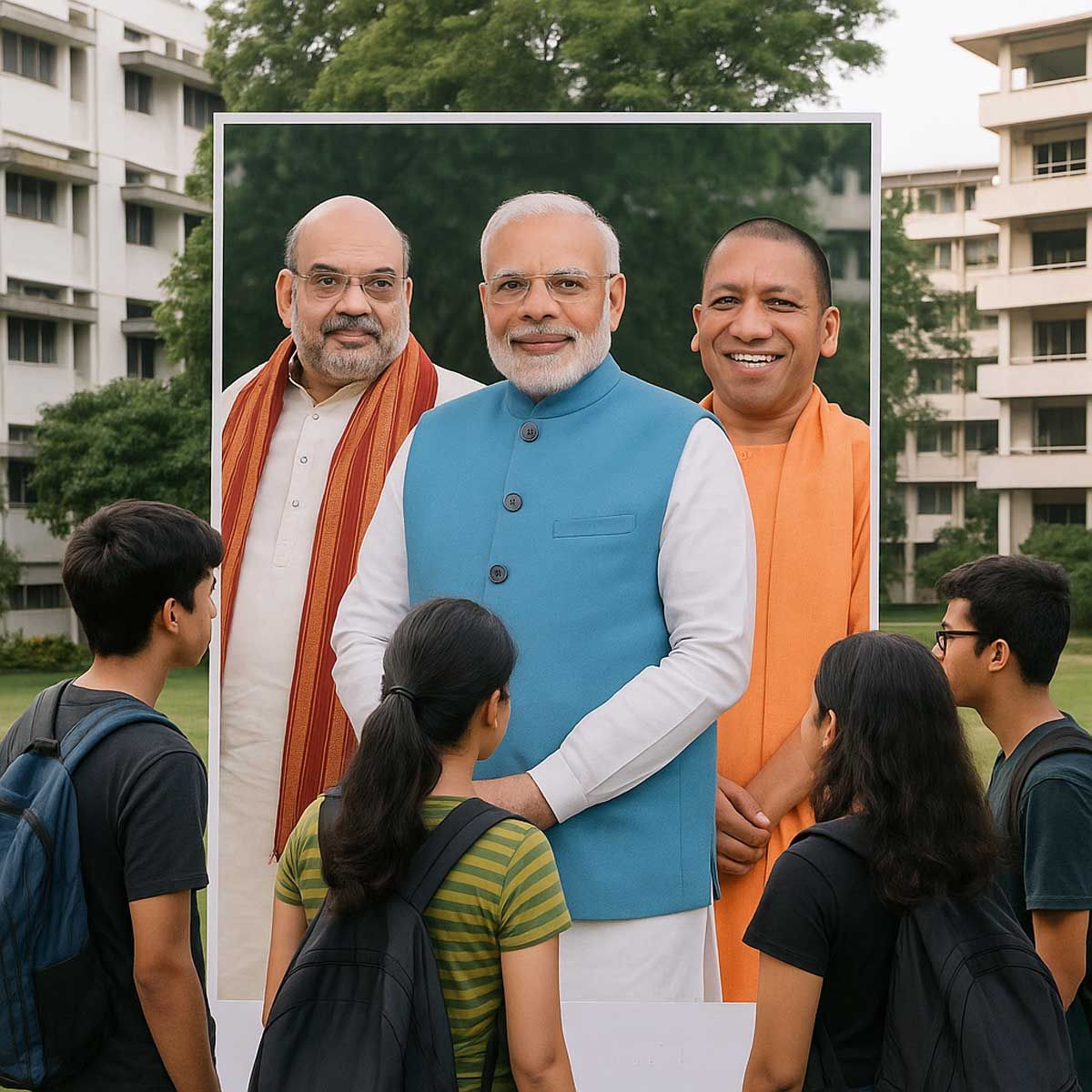More Coverage
Twitter Coverage
Satyaagrah
Written on
Satyaagrah
Written on
Satyaagrah
Written on
Satyaagrah
Written on
Satyaagrah
Written on
JOIN SATYAAGRAH SOCIAL MEDIA
India launches a bold ₹1,000 crore plan to make 1,500 tons of rare earth magnets, cutting China reliance and powering its EV, defense, and tech sectors—IREL leads, firms join, and the future of self-reliant manufacturing takes a giant leap forward

In a strong move to reduce dependency on Chinese imports and establish self-reliance in a critical sector, the Government of India is preparing to launch a ₹1,000 crore scheme aimed at strengthening the domestic manufacturing of rare earth magnets. These magnets play a vital role in several modern industries, such as electronics, electric vehicles (EVs), and defense manufacturing. According to a report by CNBC-TV18, the new initiative is expected to significantly enhance India's capacity by enabling the local production of approximately 1,500 tonnes of these magnets annually.
A crucial player in this upcoming mission is India Rare Earth Limited (IREL), which will play a major part by supplying around 500 tonnes of rare earth raw materials to OEMs (original equipment manufacturers) involved in magnet production. This effort is expected to encourage more businesses to enter the magnet manufacturing sector, with sources confirming that five to six companies have already shown interest in exploring this niche market.
Despite the current scenario appearing stable, the government acknowledges concerns that some firms may still lean towards importing fully finished components rather than relying on domestic suppliers. To counter this, the government is seriously considering adjusting the Production Linked Incentive (PLI) scheme by possibly revising its Domestic Value Addition (DVA) norms. These revisions could serve as a strategic step to push for greater localization in magnet manufacturing.
Interestingly, while India is recognized for possessing the third-largest rare earth reserves in the world, less than 20% of its geological potential has been explored. This signals a massive untapped opportunity waiting to be unlocked.
|
Experts Urge India to Remove Barriers, Tap Into Potential
Industry leaders believe that the current momentum should be used to push forward with serious exploration and technological development in the rare earth sector. Although India has abundant reserves of monazite, a mineral rich in neodymium—a key ingredient for making rare earth magnets—there are significant legal and technological constraints.
Arun Misra, CEO of Hindustan Zinc and Executive Director at Vedanta, brought attention to a critical issue when he said, “The first step is to remove monazite from the atomic minerals list and open it up for private mining investment.” According to him, India lacks the required infrastructure to extract neodymium, unlike China and Japan, which already possess advanced extraction technologies. To overcome this challenge, he emphasized the need for India to invest heavily in research & development and smelting capabilities.
Misra further elaborated that while Indian Rare Earths Ltd. currently processes beach sand to produce rare earth oxides, the value chain stagnates at that point. He strongly asserted, “Just mining monazite and making chlorides is not a solution. We need to develop ways to produce neodymium so we can manufacture permanent magnets.” This call to action highlights the urgency for India to not only extract but also convert its rare earth elements into finished magnetic materials domestically.
|
Government Weighs Subsidy Plan for Rare Earth Magnet Push
On June 24, Union Minister H.D. Kumaraswamy revealed that the government is evaluating whether to introduce a subsidy scheme to support the local manufacturing of rare earth magnets. A final decision on this could be made within the next 15 to 20 days, following thorough stakeholder consultations.
Secretary of the Ministry of Heavy Industries, Kamran Rizvi, stated that if the proposed incentives exceed ₹1,000 crore, the plan will be forwarded to the Union Cabinet for formal approval. Otherwise, it can be authorized directly by the ministers of heavy industries and finance. Kumaraswamy shared a promising development, mentioning, “One Hyderabad-based company is showing interest. They have promised that they will deliver 500 tonnes by this year-end, December. We have (had) discussions with the Mines Minister. Our Secretary and our ministry are working on, ultimately, a decision (will be taken) I think within 15-20 days.”
The urgency behind this move is underscored by recent export restrictions imposed by China on essential metals, which disrupted the global supply chain of semiconductors and automobiles. These disruptions affected many countries, including India, prompting policymakers and businesses to explore alternative sources, such as Japan and Vietnam, for procurement until local production begins—likely within two years.
Rare earth magnets like Neodymium-Iron-Boron (NdFeB) are vital for high-performance automotive systems, including power steering motors in passenger cars and traction motors in electric two-wheelers and vehicles powered by internal combustion engines.
Scheme to Accelerate Local Magnet Production & Processing
The proposed incentives will play a pivotal role in encouraging companies to build local processing units to convert rare earth oxides into usable magnets. Currently, Indian Rare Earth Magnets Ltd, a public sector unit under the Ministry of Atomic Energy, is the only recognized repository of rare earths in the country. Officials have confirmed that the PSU possesses enough resources to support the production of 1,500 tonnes of magnets.
Kamran Rizvi reiterated that the scheme’s approval hinges on the final quantum of incentives, saying, “It depends on the level of incentives. If it is less than ₹1,000 crore, (heavy industries) minister and finance minister can do it. If it goes beyond ₹1,000 crore, it has to go to the cabinet. We do not know the quantum of subsidy required yet, stakeholder consultations are on, as the minister pointed out, so varied responses have come. Somebody wants 50 per cent, somebody wants 20 per cent, so it will be subject to a competitive bid, then we will know the quantum of support required.”
To further underline the demand, officials revealed that 30 automakers had recently approached the Directorate General of Foreign Trade (DGFT) seeking permissions to import rare earth magnets from China. The concern is that a shortage of these crucial components could seriously disrupt production lines, especially in the auto sector.
 Support Us
Support Us
Satyagraha was born from the heart of our land, with an undying aim to unveil the true essence of Bharat. It seeks to illuminate the hidden tales of our valiant freedom fighters and the rich chronicles that haven't yet sung their complete melody in the mainstream.
While platforms like NDTV and 'The Wire' effortlessly garner funds under the banner of safeguarding democracy, we at Satyagraha walk a different path. Our strength and resonance come from you. In this journey to weave a stronger Bharat, every little contribution amplifies our voice. Let's come together, contribute as you can, and champion the true spirit of our nation.
 |  |  |
| ICICI Bank of Satyaagrah | Razorpay Bank of Satyaagrah | PayPal Bank of Satyaagrah - For International Payments |
If all above doesn't work, then try the LINK below:
Please share the article on other platforms
DISCLAIMER: The author is solely responsible for the views expressed in this article. The author carries the responsibility for citing and/or licensing of images utilized within the text. The website also frequently uses non-commercial images for representational purposes only in line with the article. We are not responsible for the authenticity of such images. If some images have a copyright issue, we request the person/entity to contact us at This email address is being protected from spambots. You need JavaScript enabled to view it. and we will take the necessary actions to resolve the issue.
Related Articles
- "In self-reliance, there is freedom and dignity": In just 18 months, India has embarked on the domestic production of 38 APIs, marking a massive stride towards pharmaceutical self-reliance. It's more than progress; it's a testament to our national resolve
- "As dreams meet destiny, the world watches with bated breath": Srinagar beams under the global spotlight as the enchanting Kashmir readies for Miss World 2023, 'Mind-blowing' echoes Karolina Bielawska, encapsulating the valley's mesmerizing allure
- "Innovation is the calling card of the future": Jaldost, a revolutionary airboat by Bengaluru's National Aerospace Laboratories, powers through aquatic weeds, carving the path towards preserving cleaner water bodies, a testament to indigenous innovation
- A grand leap in agricultural scenario - Upcoming Rice Technology Park in Kerala, is set to revolutionize the journey of Kuttanad rice from the verdant fields to the global stage with plans for value-added products, direct farmer procurement, and much more
- World’s highest tunnel to be built by BRO to connect Himachal Pradesh and Zanskar valley in Union Territory of Ladakh; will ease movement of the Indian Army vehicles: Director-General of BRO, Lt Gen Rajeev Chaudhary
- "Signs and symbols rule the world, not words nor laws": Surat Diamond Bourse becomes world's largest office complex beating Pentagon and the tallest building Burj Khalifa, standing as a symbol of India's architectural prowess and entrepreneurial spirit
- Civil aviation of UP Govt signed a lease agreement with the Airports Authority of India For Construction Of Maryada Purushottam Shri Ram International Airport At Ayodhya: CM Yogi compared the airport to ‘Pushpak Viman'
- "Breathing life back into the edges of our nation": PM Modi redefines 'last villages' as India's 'first', emphasizing their role in national development, the VVP promises infrastructure growth, cultural preservation, & curbing migration in border regions
- Indian Govt banned 14 fixed-dose combination drugs including Nimesulide, Paracetamol dispersible tablets, Chlopheniramine Maleate and Codeine syrup citing there is "no therapeutic justification" for these medicines and that they may involve risk to people
- "Global trust, local talent: India's invitation to the semiconductor world": PM Modi announces that India's moment has arrived in the semiconductor, Global leaders unite in praise as India gets ready to take center stage in the semiconductor industry
- “It’s not the destination, it's the journey”: India becomes 2nd-largest country with the biggest road network after beating China with total road network of 63.32 lakh km comprising all categories - national & state highways and urban & rural roads
- "The future belongs to those who believe in the beauty of their dreams": IndiGo made history with a monumental aircraft order worth $50billion marking the largest order ever in the aviation industry highlighting unprecedented growth of air travel industry
- "Experience the majestic 'Yashobhoomi', an emblem of India's advancements in global conventions and expos, developed with a budget of Rs. 5400 crore, it encompasses 73,000 sqm, featuring 15 convention rooms with the capacity to host 11,000 delegates
- At the Global Fintech Fest 2023, Finance Minister Nirmala Sitharaman calls on banks and financial institutions to encourage customer nominations for heirs, a step to address the looming Rs 35,000 crore in unclaimed deposits
- "Cyberspace undeniably reflects some form of geography": Ashwini Vaishnaw launched "Bharat 6G Alliance" for better collaboration between Govt, industry and academia in developing indigenous 6G products, India already has 200+ patents for 6G




























